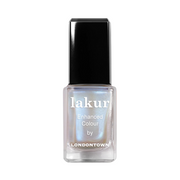Glycolic vs Salicylic Acid: Key Differences
You probably already know that glycolic acid is a chemical exfoliant - but how do you know if it’s the right chemical exfoliant for your skin type? That’s right, different skin types can benefit from different chemical (or physical) exfoliants. Let’s take a closer look at glycolic acid to find out if it’s the right one for you!
What is Glycolic Acid?
While it’s a popular skincare ingredient that exfoliates the skin, most people don’t know much more about glycolic acid beyond that - so here’s a bit more backstory. Normally derived from plant sources (usually sugarcane), glycolic acid is part of the alpha hydroxy acid (AHA) family.
There are two major groups of exfoliating acids - AHA and beta hydroxy acid (BHA). There’s also technically a third group, called polyhydroxy acids (PHA). Depending on who you ask, PHAs are a group on their own or a subgroup of AHAs - but we won’t go there right now!
The reason I’m telling you this is because acids are categorised into these groups based on their effects on the skin. All AHAs (including glycolic acid) are water-soluble exfoliators, meaning they don’t actually penetrate the skin as deeply as BHAs - something that matters when it comes to choosing the right exfoliator for your skin type!

Among the AHA family, glycolic acid has the smallest molecular weight - that means that it’s technically the ‘smallest’ type of AHA molecule, and can go a bit deeper into the skin than other AHAs. Again, this is something that’s important when deciding if glycolic acid is the right exfoliator for you.
GA-DE Soothing Cleansing Foam
This cleansing foam has a blend of acids to gently exfoliate and refresh for clearer, softer skin.
What Does Glycolic Acid Do?
We all know that glycolic acid’s benefits mainly come from sloughing off dead skin cells - that’s why it’s usually formulated in exfoliating toners and in chemical peels.
However, exfoliating benefits skin in more ways than just getting rid of excess skin cells. The reasons that you might want to pick up glycolic acid are for:
- Evening skin tone
- Rejuvenating dull skin
- Softening wrinkles
- Lightening hyperpigmentation
- Reducing the appearance of scarring
How does glycolic acid manage to do all this, you wonder? Well, it all starts with encouraging cellular turnover - that’s the process of continually shedding older skin cells to reveal the newer skin underneath.
As a natural part of the ageing process, our cellular turnover slows down - but luckily, we can speed it up with products such as glycolic acid and retinol.
Increasing cellular turnover is what helps to encourage collagen production in the skin and leads to all the benefits we see - that’s why it’s so popular to use in chemical peels and exfoliating products.
Another nifty little benefit of glycolic acid is its ability to act as a humectant on your skin. This means it can draw water into the stratum corneum, increasing skin hydration and encouraging luminosity.
However, among all these benefits is just one warning - you need to wear sunscreen if using glycolic acid. Glycolic acid makes your skin a bit more sensitive to the sun than it normally would be. If sunscreen wasn’t already part of your daily routine before, it definitely should be if you add glycolic acid to your skincare routine.
Who Should Use Glycolic Acid?
While glycolic does have some pretty amazing benefits, do all skin types benefit from it equally? The truth is, there are other ingredients that might be a better fit for your skin type - we’ve pitted glycolic acid against some other acids to show the differences between them.
Glycolic Acid vs. Salicylic Acid
Remember how we said that AHAs (like glycolic acid) are water-soluble? That means they’re not going to be as effective as Salicylic Acid (a BHA) at unclogging sebum-based clogs in pores - so if you have acne-prone skin, glycolic acid might not be right for you.
Glycolic Acid vs. Lactic Acid
Now, these two are pretty similar since they come from the same acid family. Their crucial difference is molecule size - glycolic acid has the smallest molecular weight, so it can penetrate a bit deeper into the skin. Lactic acid doesn’t penetrate as deeply - this doesn’t mean that it’s less effective, though. It just means it’s less potentially irritating, and better for more sensitive skin.
So what's the bottom line? Glycolic acid is best for combination to dry skin types who want to refine their skin texture, reduce the appearance of hyperpigmentation, and soften any fine lines that are starting to appear.







